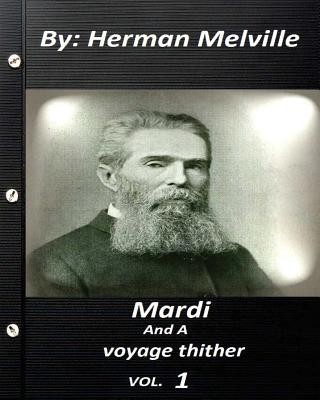
- We will send in 10–14 business days.
- Author: Herman Melville
- Publisher: CreateSpace Independent Publishing Platform
- Year: 2016
- Pages: 164
- ISBN-10: 1530588731
- ISBN-13: 9781530588732
- Format: 20.3 x 25.4 x 0.9 cm, softcover
- Language: English
- SAVE -10% with code: EXTRA
Reviews
Description
Herman Melville (August 1, 1819 - September 28, 1891) was an American novelist, short story writer, and poet of the mid-19th century American Renaissance. Best known for his sea adventure Typee (1846) and his whaling novel Moby-Dick (1851), his work was almost forgotten during his last thirty years. His writing draws on his experience at sea as a common sailor, exploration of literature and philosophy, and engagement in the contradictions of American society in a period of rapid change. He developed a complex, baroque style: the vocabulary is rich and original, a strong sense of rhythm infuses the elaborate sentences, the imagery is often mystical or ironic, and the abundance of allusion extends to scripture, myth, philosophy, literature, and the visual arts. Born in New York City as the third child of a merchant in French dry goods, Melville's formal education ended abruptly after his father died in 1832, leaving the family in financial straits. Melville briefly became a schoolteacher before he took to sea in 1839. This voyage to Liverpool as a common sailor on a merchant ship became the basis for his fourth book, Redburn (1849). In 1840 he signed aboard the whaler Acushnet for his first whaling voyage, but jumped ship eighteen months later in the Marquesas Islands. After an adventurous life in Polynesia and the Hawaiian Islands, including an imprisonment for mutiny, he returned to Boston in 1844. His first book, Typee, a fictionalized account of his life among Polynesian natives, became such a success that he worked up a sequel, Omoo (1847).
- Author: Herman Melville
- Publisher: CreateSpace Independent Publishing Platform
- Year: 2016
- Pages: 164
- ISBN-10: 1530588731
- ISBN-13: 9781530588732
- Format: 20.3 x 25.4 x 0.9 cm, softcover
- Language: English English
Herman Melville (August 1, 1819 - September 28, 1891) was an American novelist, short story writer, and poet of the mid-19th century American Renaissance. Best known for his sea adventure Typee (1846) and his whaling novel Moby-Dick (1851), his work was almost forgotten during his last thirty years. His writing draws on his experience at sea as a common sailor, exploration of literature and philosophy, and engagement in the contradictions of American society in a period of rapid change. He developed a complex, baroque style: the vocabulary is rich and original, a strong sense of rhythm infuses the elaborate sentences, the imagery is often mystical or ironic, and the abundance of allusion extends to scripture, myth, philosophy, literature, and the visual arts. Born in New York City as the third child of a merchant in French dry goods, Melville's formal education ended abruptly after his father died in 1832, leaving the family in financial straits. Melville briefly became a schoolteacher before he took to sea in 1839. This voyage to Liverpool as a common sailor on a merchant ship became the basis for his fourth book, Redburn (1849). In 1840 he signed aboard the whaler Acushnet for his first whaling voyage, but jumped ship eighteen months later in the Marquesas Islands. After an adventurous life in Polynesia and the Hawaiian Islands, including an imprisonment for mutiny, he returned to Boston in 1844. His first book, Typee, a fictionalized account of his life among Polynesian natives, became such a success that he worked up a sequel, Omoo (1847).


Reviews